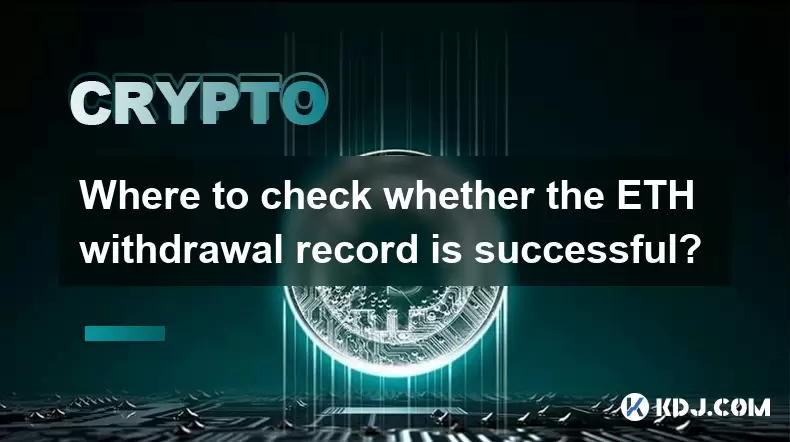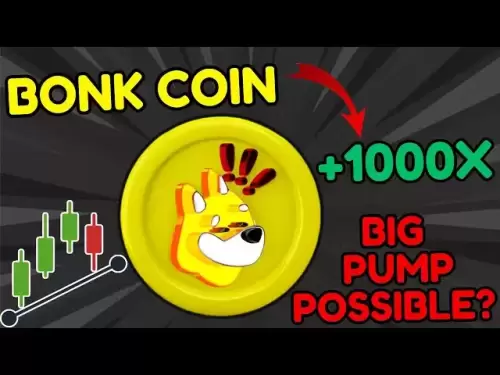-
 Bitcoin
Bitcoin $101,898.5005
-0.75% -
 Ethereum
Ethereum $2,258.1125
-1.07% -
 Tether USDt
Tether USDt $1.0004
0.01% -
 XRP
XRP $2.0178
-2.93% -
 BNB
BNB $624.0243
-1.53% -
 Solana
Solana $134.3298
-0.90% -
 USDC
USDC $0.9999
0.01% -
 TRON
TRON $0.2675
-2.05% -
 Dogecoin
Dogecoin $0.1538
-1.96% -
 Cardano
Cardano $0.5482
-1.11% -
 Hyperliquid
Hyperliquid $35.5636
5.45% -
 Bitcoin Cash
Bitcoin Cash $453.4902
-1.66% -
 Sui
Sui $2.5134
-2.97% -
 UNUS SED LEO
UNUS SED LEO $9.1292
1.77% -
 Chainlink
Chainlink $11.8457
-1.60% -
 Stellar
Stellar $0.2312
-2.73% -
 Avalanche
Avalanche $16.9721
0.29% -
 Toncoin
Toncoin $2.7549
-3.82% -
 Shiba Inu
Shiba Inu $0.0...01081
-1.10% -
 Litecoin
Litecoin $80.8250
-0.71% -
 Hedera
Hedera $0.1374
0.21% -
 Monero
Monero $305.4827
-2.36% -
 Ethena USDe
Ethena USDe $1.0006
0.00% -
 Dai
Dai $1.0000
-0.01% -
 Polkadot
Polkadot $3.2085
-3.12% -
 Bitget Token
Bitget Token $4.0845
-3.13% -
 Uniswap
Uniswap $6.3353
-1.63% -
 Pi
Pi $0.5085
-0.70% -
 Pepe
Pepe $0.0...08913
-3.82% -
 Aave
Aave $232.7090
-0.58%
Where to check whether the ETH withdrawal record is successful?
To verify your ETH withdrawal, use a blockchain explorer like Etherscan, check your wallet or exchange's transaction history, or look for email/SMS confirmations from your platform.
May 14, 2025 at 05:29 am

When dealing with Ethereum (ETH) withdrawals, it's crucial to verify the success of your transactions to ensure that your funds have been transferred correctly. This article will guide you through the process of checking whether your ETH withdrawal record is successful, covering various methods and tools available to you.
Using the Ethereum Blockchain Explorer
The most reliable way to check the status of an ETH withdrawal is by using a blockchain explorer. Blockchain explorers are online tools that allow you to search and browse the Ethereum blockchain to find detailed information about transactions, blocks, and addresses.
- Visit a reputable Ethereum blockchain explorer such as Etherscan, Ethplorer, or Blockscout.
- Enter the transaction hash (TxHash) or the address from which you sent the ETH into the search bar.
- Look for the transaction status on the page that loads. If the status shows as "Success" or "Confirmed," your ETH withdrawal has been successfully processed. If it shows as "Pending" or "Failed," you will need to take further action or wait for confirmation.
Checking Through Your Wallet or Exchange
If you used a wallet or an exchange to send your ETH, you can also check the withdrawal status directly from these platforms.
- Log into your wallet or exchange account.
- Navigate to the transaction history or activity section.
- Find the specific withdrawal transaction by the date, amount, or recipient address.
- Check the status of the transaction. If it shows as "Completed" or "Successful," your ETH has been successfully withdrawn. If it shows as "Pending" or "Processing," you may need to wait a bit longer or contact support.
Using Mobile Wallet Apps
Many mobile wallet apps provide real-time transaction status updates, making it convenient to check the success of your ETH withdrawal on the go.
- Open your mobile wallet app.
- Go to the transaction history or activity section.
- Locate the ETH withdrawal transaction you are interested in.
- Check the transaction status. Similar to desktop wallets, if it shows as "Completed" or "Successful," your ETH withdrawal was successful. If it shows as "Pending," you may need to wait or check back later.
Verifying Through Email or SMS Notifications
Some wallets and exchanges send email or SMS notifications once a transaction is confirmed. This can be another way to check the status of your ETH withdrawal.
- Check your email inbox or SMS messages for any notifications from your wallet or exchange.
- Look for a confirmation message that indicates your ETH withdrawal has been processed successfully. The message should include details such as the transaction hash, the amount sent, and the recipient address.
Using Third-Party Transaction Monitoring Services
There are third-party services designed to monitor cryptocurrency transactions and provide alerts when they are confirmed or if there are issues.
- Sign up for a transaction monitoring service such as BlockCypher or CryptoSpectator.
- Add the transaction hash or your wallet address to the service.
- Receive notifications about the status of your ETH withdrawal. If the service reports the transaction as "Confirmed" or "Successful," your ETH has been successfully withdrawn.
Checking the Recipient's Wallet
If you have access to the recipient's wallet, you can also verify the success of the ETH withdrawal by checking their balance.
- Log into the recipient's wallet.
- Check the current ETH balance.
- Compare the current balance with the previous balance before the withdrawal. If the balance has increased by the amount you sent, the withdrawal was successful.
Understanding Transaction Confirmations
It's important to understand that Ethereum transactions require confirmations to be considered final. A transaction is usually considered confirmed after it has been included in a block and several subsequent blocks have been added to the blockchain.
- Check the number of confirmations on a blockchain explorer. Most consider a transaction to be secure after 12 confirmations, though some may require fewer or more.
- If the transaction has the required number of confirmations, it is safe to assume your ETH withdrawal was successful.
What to Do if the Withdrawal is Not Successful
If you find that your ETH withdrawal has not been successful, there are steps you can take to resolve the issue.
- Wait a bit longer if the transaction is still showing as "Pending." Sometimes transactions take longer to confirm due to network congestion.
- Contact the support team of your wallet or exchange if the transaction shows as "Failed" or if it remains "Pending" for an extended period.
- Check for any errors in the transaction details, such as incorrect recipient addresses or insufficient gas fees, and correct them before resending.
Frequently Asked Questions
Q: Can I check the status of an ETH withdrawal without a transaction hash?
A: While the transaction hash is the most direct way to check the status, you can also use the sender's or recipient's address on a blockchain explorer to find the transaction. However, this method may require you to sift through multiple transactions to find the specific one you're looking for.
Q: How long does it typically take for an ETH withdrawal to be confirmed?
A: The time it takes for an ETH withdrawal to be confirmed can vary based on network congestion and the gas fee you set. Generally, it can take anywhere from a few minutes to several hours. Transactions with higher gas fees are typically confirmed faster.
Q: What should I do if my ETH withdrawal shows as "Pending" for a long time?
A: If your ETH withdrawal remains "Pending" for an extended period, first check the network conditions to see if there is high congestion. If the issue persists, contact the support team of your wallet or exchange for assistance. They can provide more insight into the transaction's status and help resolve any issues.
Q: Is there a way to speed up a "Pending" ETH withdrawal?
A: Yes, you can try to speed up a "Pending" ETH withdrawal by using the "Speed Up" or "Cancel and Replace" feature available in some wallets. This involves resubmitting the transaction with a higher gas fee, which can encourage miners to process it more quickly.
Disclaimer:info@kdj.com
The information provided is not trading advice. kdj.com does not assume any responsibility for any investments made based on the information provided in this article. Cryptocurrencies are highly volatile and it is highly recommended that you invest with caution after thorough research!
If you believe that the content used on this website infringes your copyright, please contact us immediately (info@kdj.com) and we will delete it promptly.
- BNB Price Check: Stablecoin Surge vs. Prediction Rollercoaster
- 2025-06-23 14:25:12
- Metaplanet's Bitcoin Bonanza: Holdings Skyrocket Amidst Market Swings
- 2025-06-23 14:25:12
- Global Meltdown, Investors, and Safe Havens: Navigating the Storm
- 2025-06-23 14:30:12
- NFT Sales Snapshot: Guild of Heroes, Polygon, and the Market's Shifting Sands
- 2025-06-23 15:25:12
- AVAX Support Holds, Eyes Potential Surge: What's Next?
- 2025-06-23 15:11:16
- Cointelegraph Under Fire: Exploits, Phishing, and the Crypto Media Minefield
- 2025-06-23 15:11:16
Related knowledge

How to customize USDT TRC20 mining fees? Flexible adjustment tutorial
Jun 13,2025 at 01:42am
Understanding USDT TRC20 Mining FeesMining fees on the TRON (TRC20) network are essential for processing transactions. Unlike Bitcoin or Ethereum, where miners directly validate transactions, TRON uses a delegated proof-of-stake (DPoS) mechanism. However, users still need to pay bandwidth and energy fees, which are collectively referred to as 'mining fe...

USDT TRC20 transaction is stuck? Solution summary
Jun 14,2025 at 11:15pm
Understanding USDT TRC20 TransactionsWhen users mention that a USDT TRC20 transaction is stuck, they typically refer to a situation where the transfer of Tether (USDT) on the TRON blockchain has not been confirmed for an extended period. This issue may arise due to various reasons such as network congestion, insufficient transaction fees, or wallet-rela...

How to cancel USDT TRC20 unconfirmed transactions? Operation guide
Jun 13,2025 at 11:01pm
Understanding USDT TRC20 Unconfirmed TransactionsWhen dealing with USDT TRC20 transactions, it’s crucial to understand what an unconfirmed transaction means. An unconfirmed transaction is one that has been broadcasted to the blockchain network but hasn’t yet been included in a block. This typically occurs due to low transaction fees or network congestio...

How to check USDT TRC20 balance? Introduction to multiple query methods
Jun 21,2025 at 02:42am
Understanding USDT TRC20 and Its ImportanceUSDT (Tether) is one of the most widely used stablecoins in the cryptocurrency market. It exists on multiple blockchain networks, including TRC20, which operates on the Tron (TRX) network. Checking your USDT TRC20 balance accurately is crucial for users who hold or transact with this asset. Whether you're sendi...

What to do if USDT TRC20 transfers are congested? Speed up trading skills
Jun 13,2025 at 09:56am
Understanding USDT TRC20 Transfer CongestionWhen transferring USDT TRC20, users may occasionally experience delays or congestion. This typically occurs due to network overload on the TRON blockchain, which hosts the TRC20 version of Tether. Unlike the ERC20 variant (which runs on Ethereum), TRC20 transactions are generally faster and cheaper, but during...

The relationship between USDT TRC20 and TRON chain: technical background analysis
Jun 12,2025 at 01:28pm
What is USDT TRC20?USDT TRC20 refers to the Tether (USDT) token issued on the TRON blockchain using the TRC-20 standard. Unlike the more commonly known ERC-20 version of USDT (which runs on Ethereum), the TRC-20 variant leverages the TRON network's infrastructure for faster and cheaper transactions. The emergence of this version came as part of Tether’s...

How to customize USDT TRC20 mining fees? Flexible adjustment tutorial
Jun 13,2025 at 01:42am
Understanding USDT TRC20 Mining FeesMining fees on the TRON (TRC20) network are essential for processing transactions. Unlike Bitcoin or Ethereum, where miners directly validate transactions, TRON uses a delegated proof-of-stake (DPoS) mechanism. However, users still need to pay bandwidth and energy fees, which are collectively referred to as 'mining fe...

USDT TRC20 transaction is stuck? Solution summary
Jun 14,2025 at 11:15pm
Understanding USDT TRC20 TransactionsWhen users mention that a USDT TRC20 transaction is stuck, they typically refer to a situation where the transfer of Tether (USDT) on the TRON blockchain has not been confirmed for an extended period. This issue may arise due to various reasons such as network congestion, insufficient transaction fees, or wallet-rela...

How to cancel USDT TRC20 unconfirmed transactions? Operation guide
Jun 13,2025 at 11:01pm
Understanding USDT TRC20 Unconfirmed TransactionsWhen dealing with USDT TRC20 transactions, it’s crucial to understand what an unconfirmed transaction means. An unconfirmed transaction is one that has been broadcasted to the blockchain network but hasn’t yet been included in a block. This typically occurs due to low transaction fees or network congestio...

How to check USDT TRC20 balance? Introduction to multiple query methods
Jun 21,2025 at 02:42am
Understanding USDT TRC20 and Its ImportanceUSDT (Tether) is one of the most widely used stablecoins in the cryptocurrency market. It exists on multiple blockchain networks, including TRC20, which operates on the Tron (TRX) network. Checking your USDT TRC20 balance accurately is crucial for users who hold or transact with this asset. Whether you're sendi...

What to do if USDT TRC20 transfers are congested? Speed up trading skills
Jun 13,2025 at 09:56am
Understanding USDT TRC20 Transfer CongestionWhen transferring USDT TRC20, users may occasionally experience delays or congestion. This typically occurs due to network overload on the TRON blockchain, which hosts the TRC20 version of Tether. Unlike the ERC20 variant (which runs on Ethereum), TRC20 transactions are generally faster and cheaper, but during...

The relationship between USDT TRC20 and TRON chain: technical background analysis
Jun 12,2025 at 01:28pm
What is USDT TRC20?USDT TRC20 refers to the Tether (USDT) token issued on the TRON blockchain using the TRC-20 standard. Unlike the more commonly known ERC-20 version of USDT (which runs on Ethereum), the TRC-20 variant leverages the TRON network's infrastructure for faster and cheaper transactions. The emergence of this version came as part of Tether’s...
See all articles
























































































